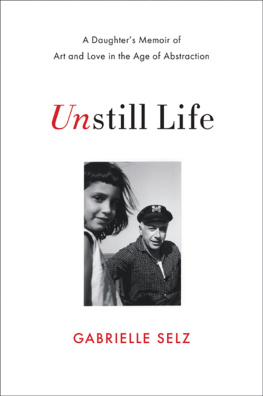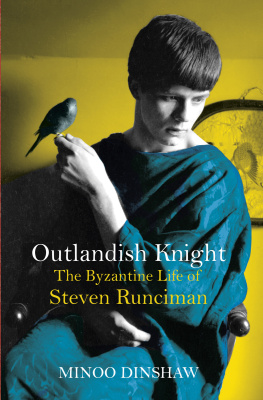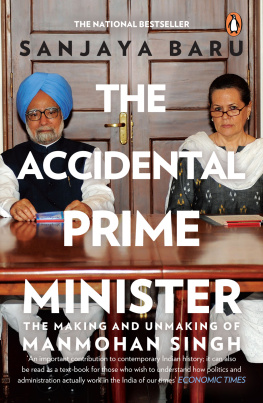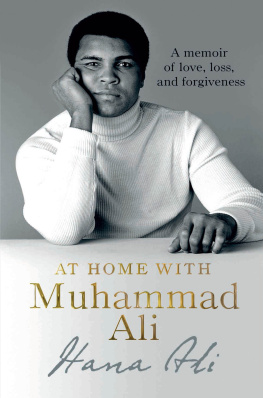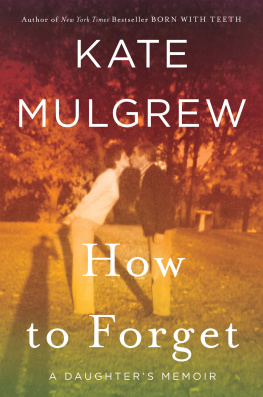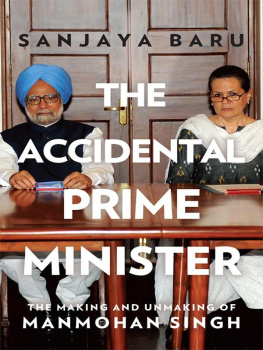Penguin Books is part of the Penguin Random House group of companies whose addresses can be found at global.penguinrandomhouse.com.
This digital edition published in 2016.
This book is sold subject to the condition that it shall not, by way of trade or otherwise, be lent, resold, hired out, or otherwise circulated without the publishers prior consent in any form of binding or cover other than that in which it is published and without a similar condition including this condition being imposed on the subsequent purchaser.
Introduction
This is the story of a controversial love marriage across Indias communal divide, which ended tragically in seventeen-year-long divorce proceedings. I was the only child of that marriage and, to my continuing regret, played a crucial part in its breakdown. The half-century during which our triangular relationship was played out was also a period of dramatic political conflict and change in the subcontinent, a history in which both my parents and grandparents played a prominent part.
The Masani and the Srivastava families were as divided by temperament, lifestyle and political affiliation as the Montagues and Capulets of Shakespeares Verona; and their mutual battles often reached the same intensity. But, for all their differences, they shared a passionate belief in the value of Western education, modernization, secularism and womens emancipation.
My paternal grandfather, Sir Rustom Masani, was a scholar and man of letters who scorned wealth and the comforts it could buy. He began his long career as a journalist at the turn of the nineteenth century, became the first native Indian Municipal Commissioner of Bombay, then Rector and Vice Chancellor of Bombay University in the 1930s, and Leader of the National War Front in the 1940s. He spent the rest of his life, well into his nineties, writing scholarly historical books on subjects as wide-ranging as Persian court poets and British colonial rule.
My father Minoo rebelled against his own pro-British father in the 1930s, when he was one of the founder-leaders of the Congress Socialist Party. Later, in the 1940s, he was among the first left-wing intellectuals to see through the betrayal of socialism by Soviet Communism and by its Indian fellow travellers, among whom he numbered his former friend and colleague, Jawaharlal Nehru. His role as founder-leader of the pro-Western, free-market Swatantra Party, Indias first serious parliamentary Opposition, is well known; and it is ironical that our present Prime Minister from the Congress Party, Dr Manmohan Singh, acknowledges Minoo Masani as his main ideological inspiration, rather than Pandit Nehru.
My mothers family, Kayasths of Uttar Pradesh, could not have been more different from the Parsi Masanis. My maternal grandfather, Sir J.P. Srivastava, made a fortune as a textile mill owner, and his children grew up in the lap of hedonistic luxury with British and French governesses. Sir J.P. was an arch Empire loyalist and prominent in the viceregal cabinet through the 1940s as the right-hand man of two successive viceroys, Lords Linlithgow and Wavell. My mother rebelled, joined the Quit India movement and absconded from her parental home to work as a journalist in Bombay.
Neither family was pleased when my parents fell in love and eloped, especially as my father was fifteen years older than his bride and had been married and divorced twice before. Growing up in the 1950s and 60s, I was torn between the rival influences and attractions of my Parsi and Hindu grandparents. Later, in 1970, I rebelled politically against my father; and in a dramatic public defection that made press headlines, my mother and I joined Indira Gandhi and rejoiced in her landslide victory of 1971. Unfortunately, their political differences marked the end of my parents marriage; and I paid the price for encouraging the break when I had to cope with my mothers loneliness, unhappiness and general decline in the decades that followed. Our disillusionment with Mrs Gandhi, especially when she imposed her state of Emergency, made the whole domestic rift seem even more futile.
My parents were remarkable individuals with considerable talents. In telling their story I have drawn heavily on their personal and very eloquent letters and diaries, especially as they both wrote extremely well. As far as possible, I have been candid about their flaws and my own, in the belief that the truth, warts and all, will do more justice to their memory than the usual Indian fashion for family hagiography. I have also been frank about my own sexuality and the trials and tribulations of growing up in the homophobic world of 1950s Bombay.
My father was vindicated in his lifetime by the collapse of socialism both globally and in India; but my mother departed with no such sense of achievement. I have tried to offer her in death some of the dignity that adverse circumstances denied her in later life. As a historian, I believe that this family memoir might also have some value as a record of three generations who bridged and contributed to Indias evolution from nineteenth-century British colonial rule to the status of an emerging, twenty-first-century superpower.
One
Ashes of Roses
My mothers ashes are in a black cardboard box, about the size of a large shoebox. It is sealed with Sellotape when I collect it from the funeral parlour, and I dont dare open it for a closer look. It feels surprisingly light, about a kilo, which is fortunate, because Ive been told by the funeral director that I have to carry it in my hand baggage. Customs might need to check that Im not smuggling forbidden substances.
In life, she travelled anything but light, especially as her summer migrations to London grew longer with the advancing years. Regardless of local availability or airline baggage restrictions, she came with half a dozen suitcases full of everything she might conceivably need for several months, ranging from clothes for every season and occasion to towels and medication. To be fair, she also loved giving presents; and she came bearing gifts for me, my partner Dave and our friends, and for the north London house that was becoming her second home.
The pattern was established three decades ago, when it became clear that, after several years as a student, I would inevitably stay on abroad, first as a freelance journalist and, when that proved too uncertain, as a more secure BBC current affairs producer. Underlying my reluctance to return to India, where family connections would certainly have brightened my career prospects, lurked my sexuality, for which permissive 1970s London looked a great deal more promising. But there was also an instinctive need, not yet consciously articulated, to escape the domination of an overbearing father, the dependence of an overindulgent mother and their internecine warfare, which focused as much on the upbringing of an only child as on their own incompatibility.


